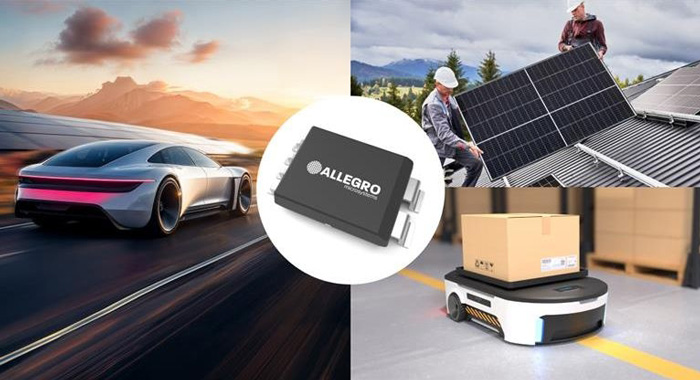Onsemi cancels plan to acquire semiconductor solution developer Allegro MicroSystems for $6.9 billion.
In March, onsemi disclosed its acquisition offer. At that time, Allegro was valued at $6.9 billion (including debt), higher than the $34.50 per share offered in September last year. On April 15, onsemi announced the official termination of the acquisition and withdrew its previously proposed cash offer of $35.10 per share.
According to a statement released by onsemi, it still believes that the merger of the two companies will bring together highly complementary businesses of both parties, benefit their respective customers, and bring direct value to Allegro shareholders. But in the end, it was determined that there was no viable path to advance the transaction. onsemi CEO Hassane El-Khoury said that onsemi will be committed to taking a rigorous approach to capital allocation and maximizing long-term shareholder value.

Source from Internet
Allegro mainly focuses on the design and manufacture of magnetic sensors and related integrated circuits, especially Hall effect sensors. These integrated circuits are widely used in automobiles (such as motor control, current detection, and position sensing), industrial control, and consumer electronics, as well as data centers and factories.
onsemi hopes to expand its original sensor product line in the business sector through the acquisition of Allegro, and after the integration, it can also reduce R&D costs and improve overall profitability.
However, Allegro is not interested in onsemi's acquisition proposal. Since last year, Allegro has not decided to put the entire plant up for sale, and except onsemi, other consortia are also interested in Allegro.
With the release of tariff policies in many countries around the world, the slowdown in the electric vehicle market in Europe and the United States has also led to possible sales pressure on automotive chip manufacturers. onsemi was deeply affected and recently disclosed a restructuring plan and plans to lay off 2,400 employees in 2025.
In addition, onsemi has stopped investing in its silicon carbide power management IC factory in South Korea and recalled most of the engineers from the Bucheon factory in Gyeonggi Province, South Korea, to the United States. According to sources, there are only some researchers in the factory at present, and it is expected to be restructured as well.
In 2022, onsemi announced that it had invested 1.4 trillion won (US$1 billion) to build the S5 production line at its Bucheon plant. Previously, its other production lines at the plant had been acquired from Samsung. onsemi CEO Hassane El-Khoury said at the time that the total SiC output of the Bucheon plant would account for 35% to 40% of Onsemi's total SiC output.

Source from onsemi
As a key material in electric vehicles and new energy, SiC is regarded as the future direction of the semiconductor industry due to its high temperature, high pressure, and high efficiency. However, with the slowdown in electric vehicle sales in South Korea and the increase in demand for Si IGBT chips used in economical electric vehicles, the investment plan in Korea also needs to be adjusted.
onsemi will shift its investment focus to the Roznov plant in the Czech Republic. It plans to invest $2 billion to build a full-chain SiC production line, which will be put into operation in 2027. The production capacity will be three times that of the Bucheon plant. The Czech plant is closer to the European EV and industrial markets, avoiding the risk of price wars in the East Asian market.
By integrating 9 factories, closing inefficient production capacity, and acquiring the DeWitt factory in New York, it gradually transformed to "selective vertical integration", focusing on high-profit self-developed SiC manufacturing and reducing dependence on foundries.
However, the global SiC market is facing multiple challenges. The EV boom from 2021 to 2023 promoted a large amount of investment in SiC. But the global EV sales slowed down in 2024, resulting in inventory backlogs and overcapacity. SiC wafer production involves substrate growth, epitaxial deposition, and device manufacturing, and it is difficult to improve the yield. The defect density control of 8-inch wafers is still a difficult problem in the industry.